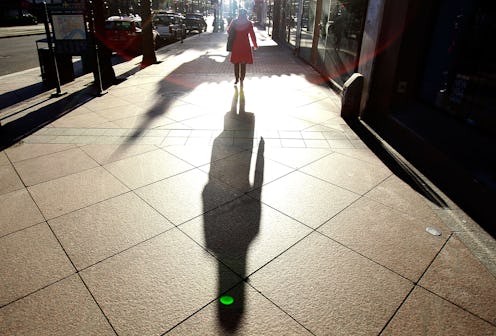Life
The Reasons People Don't Take Survivors Seriously
One of the most frustrating and baffling problems in attempting to combat sexual assault is the simple fact that people tend to just not believe rape victims when they come forward with their stories. And while this doesn't seem to make any sense, as Laci Green's video "Do Girls Lie About Rape" succinctly summarizes, there are reasons for why this is. They're just not, you know, good reasons. But then, did anyone ever think they were?
Sexual assault is a huge problem in most parts of the world, including right here in America. Up to one in four women in the United States will be sexually assaulted in her lifetime, and there are almost 300,000 victims of sexual assault in the US each year. And yet in spite of the fact that this is a major issue, one that has not been improving over the years, it's rarely treated like the ongoing crisis that it is. And part of this is the simple fact that people don't take sexual assault seriously, which is never more clear than when we consider the reactions people have to the stories of survivors. Because of all the range of possible reactions, the most common is disbelief.
So why don't people believe rape survivors? Why don't people take it seriously when victims come forward with there stories? Why, in the face of all the evidence that false rape reports are incredibly rare, do we still persist in assuming that those who speak out must be lying or mistaken?
Well, here are a few reasons Laci Green summarizes in her video on the topic for her "Braless" series on MTV. Like I said at the beginning, none of them are good reasons.
People Don't Trust Women
Not trusting rape survivors is just one part of a larger cultural trend of not trusting women. It's a general problem, but it gets thrown into sharp relief in rape cases, where often times the most importance evidence of what's happened is a woman's own account.
Male Survivors Have To Be Lying, Too
As a society we don't take male rape survivors seriously, either, especially men who have been raped by a woman, because of the widespread stereotype that men always want sex. So how could a man have sex against his will if men are always down for sex? In other words, the myth that men are so ridiculously hyper-sexual isn't just used to excuse sexual assault of women, but to invalidate accounts of sexual assault against men.
Women Are Untrustworthy and Irrational
From media portrayals to the way in which we talk about women to age old stereotypes about the differences between men and women, the general consensus seems to be that women are emotional, irrational, and generally unable to be objective. When in reality, of course, women's perceptions are no more subjective than men's.
Gaslighting
As if it wasn't enough that the world at large insists on doubting women, we also make women doubt ourselves by repeatedly questioning our perceptions, forcing us to call into question things we know to be true and thereby making us less certain of ourselves. Gaslighting, of course, can happen to anyone, but it is a particularly common tactic — intentional or otherwise — against marginalized communities, particularly when our accounts contradict prevailing narratives. So it's unsurprising that it's used against victims of rape and attempted rape all the time.
Obviously, people have been talking about all of these things for a very long time, but if you're looking for place to have it clearly laid out in under four minutes, look no further.
